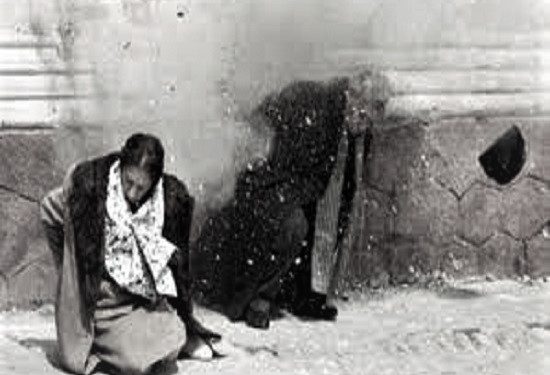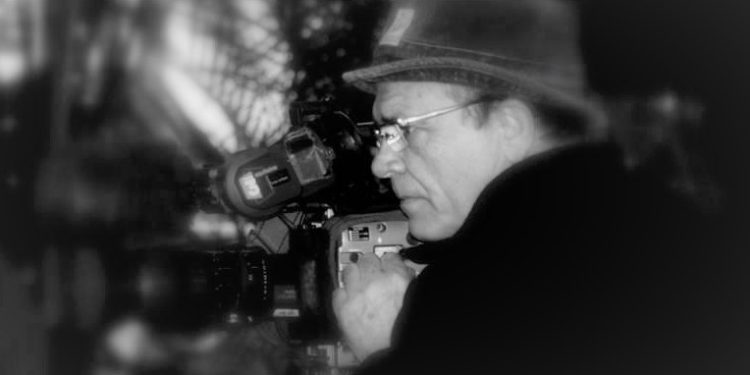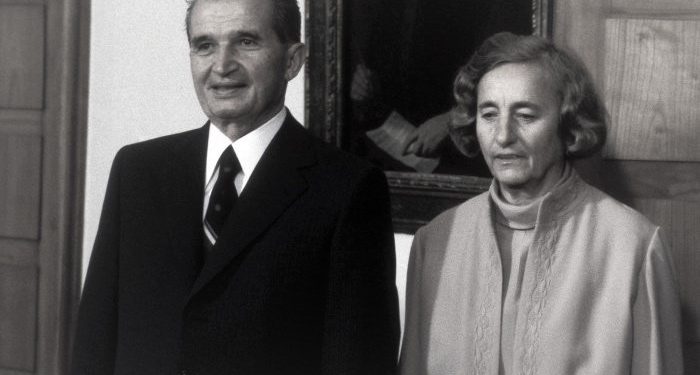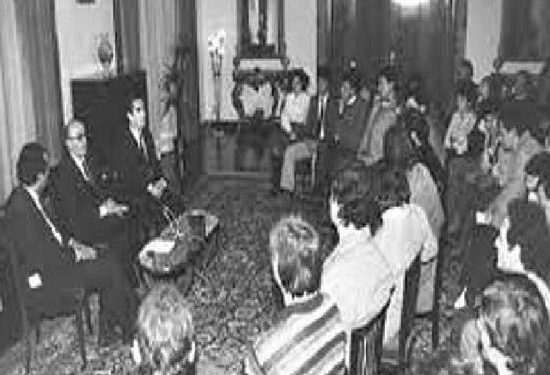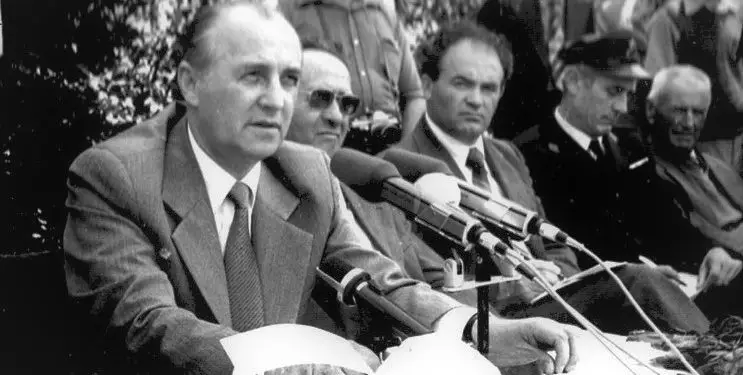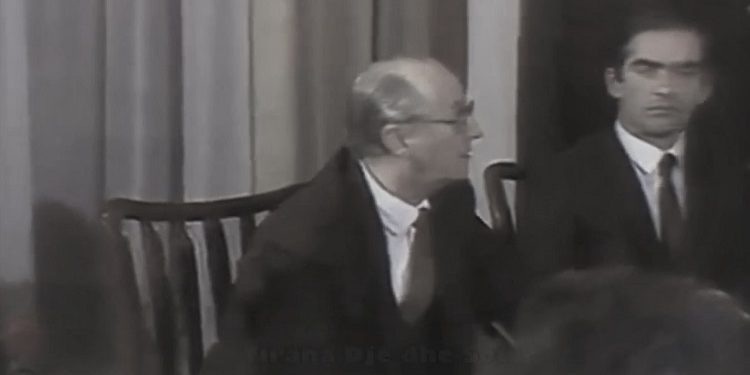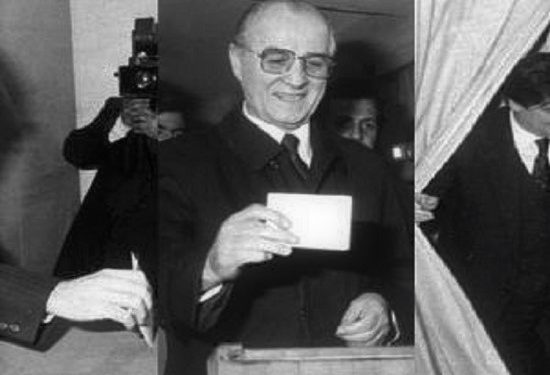By Vasil Qesari
Memorie.al/ The overthrow of the great totalitarian edifice in Albania would leave behind, not only the change of the system, accompanied by full hopes, mirages and cries of happiness but, unfortunately, also many wounds, dramas, victims, dust, ml lefe and disappointments from the most diverse. Ten years and more after that event, which deeply shook society, completely overturning many previous codes, rules and concepts, people still continue to ask themselves such questions as: What really happened in society Albanian, during the last 50 years of the dictatorship? How was it possible that the system managed to warp everything? Why did people accept it? What was the totalitarian logic of the transformation of society and the individual? How were the structures of totalitarian mechanisms conceived and functioning: propaganda, secret police and the exercise of the ideology of terror? How did it happen that among all the communist countries of Eastern Europe, Albania was considered an exception or a special case? Why did Enver Hoxha remain blindly, fanatically loyal to Stalin until the end, turning the country into a prison where violence, fear and purges continued until the end of the 80s? Why was the country so insanely isolated, locking people up between bunkers and barbed wire? Why, then, did all the above phenomena happen…?! The book “Post-scriptum for Dictatorship” does not claim to provide definitive answers to the above questions, or the complexity of the reasons that brought and maintained the totalitarian power in Albania. Nor is it a complete, deep and comprehensive fresco of the life and suffering that people experienced during that system. Its author, perhaps, has the merit that together with the retrospective view of the totalitarian period as well as the zeal of a passionate analyst, he has tried to turn his head back once again, to give not only his personal memories and opinions, but also to return once again to the vision of that era with the simple philosophy of preserving the Memory and supporting the Appeal to never forget the well-known maxim, that…the corpse’s nails and hair continue to grow even after death! Ten years or more after the great revolution, the book in question has current value and we hope it will be appreciated by the reader because, as an Albanian researcher also says… the greatest evil that can happen to a people comes when he fails to analyze his own past. An amnesic people are forced to be constantly neuropathic and repeat their painful experiences…!
EVENTS THAT BRINGED DECEMBER
All the communist countries in Eastern Europe were experiencing quite shocking situations. In the Soviet Union, after Gorbachev came to power, the Gllasnost and perestroika reforms, along with the liberalization of life, were always hitting the Party’s power and authority harder. The changes in BS, Gorbachev’s rapprochement with the West, the treaties with the United States, etc., had given heart to the reforms of the radical movements in the socialist countries. In Poland, the independent trade union Solidarnošt had openly opposed the regime, while in East Germany, Czechoslovakia, and Hungary and elsewhere, busts of Marx and Lenin were being toppled in hatred by mobs.
The Eastern socialist system was coming to an end…! Albania, although it called itself out of this game, suffered a serious blow, because it also had its share of the sun in that system; moreover, in more difficult economic conditions than all the other countries of the East. With the created situation, could it be a question of any step closer to the Western countries? That aunt seemed to have burned…!
But some ideas, speeches and actions of Ramiz Ali began to arouse not only wonder and confusion, but also hope for changes. Aware of the crisis and bankruptcy of the country’s economy, he basically understood that even Albania would not be able to escape the influence of the processes taking place in Eastern countries. This is the reason why some of his careful moves created the impression in the internal opinion that the country was trying to open up. But, in fact, every step and maneuver was done above all for the protection of power. In the end, nothing more could be expected from Ramiz Ali and the Political Bureau that surrounded him.
And, besides, he could not step on the Commander’s Bequests! But, nevertheless, it was necessary for something to move. At the end of 1987, after three consecutive visits by the Bavarian Prime Minister Franz Joseph Strauss, diplomatic relations were established between Federal Germany and Albania.
Meanwhile, in newspapers and official speeches, references to Marx and Lenin began to be no longer cited. Meanwhile, in February 1988, for the first time, Albania participated in the Balkan Conference of Foreign Ministers organized in Belgrade. A month later, surprisingly, it was forgotten to celebrate the anniversary of Stalin’s death and, a little later, the famous Mother Teresa was received with great honors in Tirana…!
The words circulating up and down that the country was showing signs of willingness to open up, that their inspiration and the originator was Ramiz Alia, that in the atrophied Stalinist leadership he was the only one who could make changes, that the conservative wing led by the Panther black, they did everything possible to prevent it – all these were long topics of conversations, conjectures, hopes and discussions not only in circles of intellectuals and young people, but also in certain layers of the people and beyond… !
But, despite all the hopes, things in the country were not going well at all. Concerned, at the 8th Plenum of the Central Committee, held in September 1989, Ramiz Alia tried to justify the situation, blaming it on the consequences of turbulent situations in the world. Meanwhile, as far as the internal situation was concerned, he no longer quoted the stereotypical euphoric phrases, but declared that: indeed we do not live in abundance, but we do not owe anyone…! We are proud of our freedom, independence and sovereignty of the country.
But these phrases did not comfort anyone.
Because the country has been plagued by misery and hunger. In the people, dissatisfactions increase and are expressed openly. The market is empty. Providing a meat ration is a great privilege. (There are rumors that the price of donkeys on the black market is increasing day by day because it is sold instead of beef). The situation has reached a point where Ramiz Alia cannot do anything to change it, except to blame the economic control mechanisms, which do not work properly.
The pressure for changes, to find a way out, to make reforms, increases. And, Ramiz Alia, pretends to take measures and acts. But his every move is indecisive and lacking. Of course, he has no intention of becoming Albania’s Gorbachev! He cannot violate Enver Hoxha’s oath: “We eat grass, but we do not betray ideals”!
Meanwhile, the situations in Eastern European countries were evolving day by day. On November 9, the infamous Berlin Wall came down. Further, the events continued according to the domino effect, towards Warsaw, Prague, Budapest…! What about now? Who was your turn after them?
December 17, 1989
Foreign radios and televisions announced bloody confrontations between students and workers with the police in Timisoara (Romania). To suppress them, the army intervened with violence. There were people killed and injured, but the demonstrators went out on the streets again. In Albania, people turned their eyes to the Italian television news, which, from time to time, gave chronicles of the events. Many people asked: How would things turn out, in Romania, in a country which had many points in common with the Albanian dictatorship?
How would the demonstrations end? How would Ceausescu react…?
December 20. In Timisoara, the riots continue and the situation is very bad. However, Ceausescu does not interrupt the planned visit to Iran. He leaves in a hurry early in the morning. Later that day, the visit ends and in the evening it is announced that the president will address the entire nation with a message via radio and television. Ceausescu, in general, has never been a good orator, but his speech delivered on the night of December 20 was truly the most disastrous of his entire career as a statesman.
He appeared on the screen standing with a piece of paper in his hand, filmed in an office of the Central Committee. On one side, close by, were my friend Elena and Prime Minister Daskalescu; on the other hand, members of the Political Bureau. In his speech, Ceausescu avoided the analysis of the events in Timisoare, not stopping to throw lightning at the country’s “traitors” who, in cooperation with external enemies, were threatening the territorial integrity of the Romanian socialist homeland.
On the morning of December 21, the Party organized a solidarity rally in the square in front of the Central Committee. The most ardent militants and activists had been working door to door all night to ensure the largest possible turnout. In the morning, 100,000 people, with the most fanatical communists and civil servants of the Securitate (Romanian State Security), at the forefront, had gathered to once again express their loyalty to the big boss. Meanwhile, the television had taken the necessary measures for the live broadcast of the popular manifestation.
Around 1:00 p.m., Ceausescu began reading the speech, in a quiet, low voice. But, exactly in those moments, the unexpected happened. A large part of the crowd began to murmur under their breath, letting out a long uh, uh, uh… With a wave of his hand, Ceausescu tried to calm the crowd. But this did not succeed. Then, he looked around without speaking, looking dazed and lifeless. Someone, next to him, approached him and said next to his ear: Security is coming…! Words which, although uttered softly, were heard by the crowd through the main microphone.
At that moment, the television stopped broadcasting. But, before a few seconds passed, Ceausescu’s figure appeared on the screen again. Her friend, Elena, approached her and said something in her mother’s voice. After that, the dictator, like an automaton, began to address the crowd with a “litany” of promises, for the increase of workers’ salaries and compensations for their families. Meanwhile, in the distance, towards the square, tanks appeared to be coming and gunshots began to be heard…
What happened that day in Bucharest clearly showed that the violence and oppression against the people had reached its peak? But the scary shadow of Ceausescu no longer scared anyone. Over the next 24 hours, it became clear that his power was crumbling. Clashes between the police and demonstrators of different ages started in the streets of the capital. Then, in the evening hours, several thousand demonstrators occupied the square in front of the university, setting up barricades and setting fire to many buses and cars. Around 23:00, the radio broadcast the news that General Milea, Minister of Defense, had killed himself.
Then events precipitated. The soldiers, together with the demonstrators, headed towards the Central Committee, where Ceausescu was sheltering with his collaborators. The crowd burst through the iron doors and poured into the central entrance, but in those moments they all stopped when they saw a white helicopter take off from the terrace of the Central Committee building, which, after making a round flight, took off in a northerly direction. .
An hour later, television reported that Ceausescu and Elena had been arrested near the town of Tirgoviste, north-west of Bucharest. Later, in the evening of December 25, the television broadcast the chronicle of the judicial-military process of the Ceausescu couple, as well as the footage of the shooting and then the quick burial of their corpses.
Like the whole world, the Albanians, through the news and chronicles of foreign radios and televisions, followed step by step the terrifying events in Romania. They witnessed the overthrow of a dictatorship, which was as brutal as that of Tirana. In fact, the similarities between them were really quite big. Both peoples were Balkans. With similar history, traditions, psychology and mentality. Also, with the same systems, ideology and dictators.
(Enver, even though dead, still found the ghost very scary. Even, even more so than that of the living Ceausescu. On the other hand, his widow, Nexhmija, was an even worse image of wickedness, arrogance and Macbethian crimes of Elena. And, finally, the Romanian Securitate, former Siamese brother with the terrible Albanian Security…).
Meanwhile, the whispers started. Of course, with timidity, doubt, fear, but also with hope. Who was next, now, after Bucharest? Would the domino effect in the East end with the fall of Tyranny in Tirana…?
…In a conversation with Ramiz Alina, just a few days after the television footage showing the tragic end of Ceauşescu and his wife Elena, the boss said: We had foreseen the end of “Ceauş” in time. He himself chose the revisionist path, leaving Marxism! I found those kinds of conclusions not very natural and convincing. However, I asked him: Are we going to write something about these events in the newspaper? There is no need to pronounce. Nothing has connected us and nothing connects us to him. We have our way. Right or not…?!
In fact, that seeming security and calm was one side of the coin. The fall of the authoritarian regime in Romania and the end of Ceausescu caused panic in the ranks of the senior leadership, giving heart to anti-communist actions in the country. However, the regime, like the ostrich, did not want to believe that its end was near and inevitable.
In January 1990, in some neighborhoods of Tirana, the first slogans were written, “Enver – Hitler”, “Down with Communism”, “We want freedom”, accompanied by tracts calling for the overthrow of the regime. Meanwhile, in Shkodër, a popular demonstration was organized where groups of young people tried to topple Stalin’s bust. The security intervened violently, making numerous arrests. Then, in February, in the capital, there were secret whispers about the organization of an anti-communist demonstration, which would be held in Skenderbey Square. People are moving and showing their revolt and dissatisfaction openly and without fear…!
Frightened, the regime began to change tactics. Sometimes with threats and sometimes with concessions. It was precisely in such a situation that they started talking about reforms in the democratization of life and the improvement of socialist legislation. (For protection during court proceedings, reforming the legal system, releasing political prisoners, etc.). According to the new orientations, all these were expected to be accompanied by a further development of exchanges with foreign countries, accompanied by the renewal of the driving forces of socialist production.
But the 9th Plenum of the Central Committee (January 1990) was ominous even though, at times, the softening of his tones was only the last cry of despair. According to his philosophy, the events in the East had nothing in common with the Albanian people and that… the international bourgeoisie intended that the same counter-revolutionary events as those that took place in those countries should also happen here.
However, to get out of the situation and create a different image, it was necessary to change tactics. It was necessary to make some measures, which, according to the logic of the Party, would not only serve to calm the situation in the country, but also dampen the attacks of the international bourgeoisie, which was doing its best to involve the people in riots. I messed it up.
In March, Ramiz Alia publicly promised that the democratic processes started in the country were irreversible. In April, in the newspaper Zëri i Populli, the article In search of lost time by prof. Ylli Popës, who called for changes recognizing the mistakes of the past. (The majority of readers supported his ideas, but there were not a few who addressed letters to the Central Committee, denouncing its counter-revolutionary content).
In April, in another speech, Ramiz Alia stated that, in the field of agriculture, it is the peasantry itself that must judge and decide on the ways and means of its supply, while the Ministry of Agriculture started to new orientations are sent for the expansion of yards, keeping cattle, encouraging production for the private market, etc.
In May 1990, in the internal materials of the Party and then in the press, there was talk about the restoration of diplomatic relations with the US and the US. That same month, the People’s Assembly repealed the infamous law 55 on agitation and propaganda, as well as that of religious propaganda. of the consciousness of each individual).
Meanwhile, a number of other measures were announced for the deepening of the democratization of life, such as the reopening of the Ministry of Justice, the provision of citizens with passports to travel abroad, the removal of the definition of escape as treason against the homeland, etc. Likewise, the regime began to be interested in membership in the Conference on Security and European Cooperation as well as in signing the Acts of the Helsinki Conference.
Spectacular reforms were declared, but people did not see any changes. The security continued the arrests, while the Party, in secret meetings, declared that it had gained power with blood and would defend it with blood. So everything was demagoguery! Ramiz Ali’s promises were enough to throw ashes in the eyes. Under such circumstances, the tension in the country increased further. Riots and clashes with the police broke out in Kavaja. Then, there were similar ones in Tirana as well. On July 1 and 2, the embassies in Tirana were occupied by thousands of citizens. In October, Ismail Kadare sought political asylum in France. The situations changed by the day. The country was boiling and waiting to explode.
The regime that was on the edge of the precipice was taking the roll towards the inevitable end. In the first days of December, student protests erupted. On the 12th of the same month (December 12, 1990), the Democratic Party was created, the first anti-communist opposition party, which also marked the beginning of the era of political pluralism in Albania. On February 20, 1991, amid the tears and joy of the people’s calls for Freedom and Democracy, the monument of the hated dictator, Enver Hoxha, fell and was dragged through the streets of the capital.
This was also the end of the night of the long totalitarian struggle. The last act of a people’s horrifying tragedy. A new era was starting for Albanians…/Memorie.al




